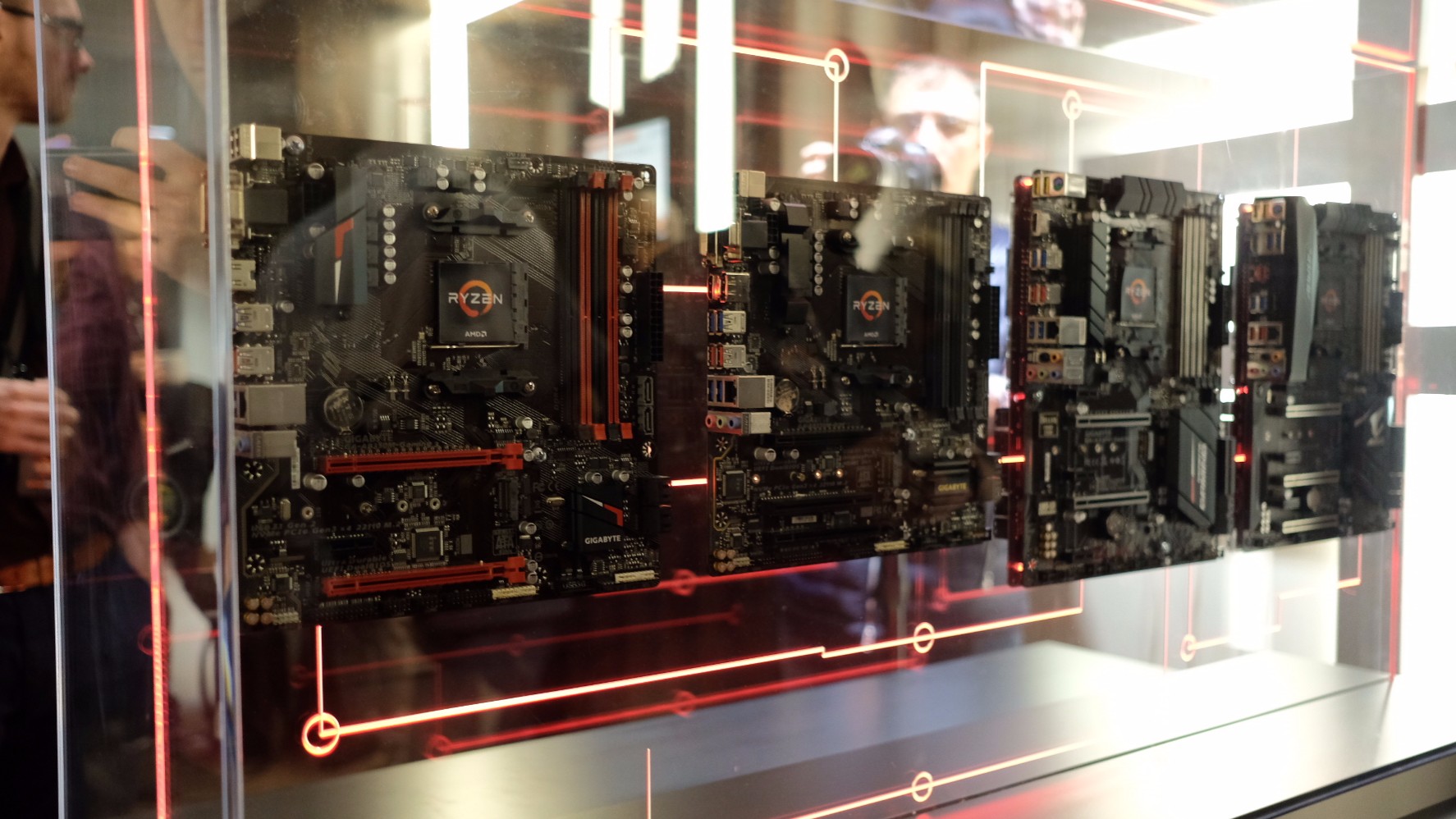AMD’s official gaming benchmarks show just how fast Ryzen is against Intel
How does the 1800X stack up against Intel’s 6900K in 4K?

Fancy having a look at some comparative gaming benchmarks pitting AMD’s new Ryzen processors against Intel rivals? Then your luck’s in, because AMD has released a whole slew of official results to feast your peepers on.
In 4K gaming, AMD pitted its Ryzen 7 1800X against Intel’s Core i7-6900K, in a system which had 16GB of RAM and an Nvidia Titan X graphics card (the latest Pascal offering).
Average frame rate scores were, overall, very close across a range of games. AMD sneaked a win in Battlefield 4 with 72 fps (frames per second) playing Intel’s 70 fps, and it was a similar story in Ashes of the Singularity (54 fps versus 53 fps). Doom (using Vulkan) was more of a victory for the AMD processor which achieved 81 fps compared to 75 fps for the 6900K.
Intel’s processor just edged the GTA V benchmark, though, with 123 fps compared to 122 fps for AMD, and the Core i7 was a clear winner in Civilization VI, hitting 83 fps versus 69 fps.
Using 99th percentile frames per second benchmarks – i.e. excluding 1% of potential outliers, to get a better indication of overall smoothness, essentially a more accurate average – gave similar results, but tipped things a little more in AMD’s favor when it came to Battlefield 4 (54 fps beat Intel’s 44 fps).
- Pair your processors with only the best in gaming headsets
1440p prowess
As for 1440p gaming, AMD pitted the Ryzen 1700X against Intel’s Core i7-6800K in a system which had 16GB of RAM and an Nvidia GTX 1080 graphics card.
The Intel processor had a slight lead across most benchmarks, but again it was a very close run thing. In favor of Intel, the average frame rate in GTA V was 145 fps versus 139 fps, with Battlefield 4 witnessing 115 fps beat 111 fps, and Ashes of the Singularity was 56 fps edging out 55 fps.
Get daily insight, inspiration and deals in your inbox
Sign up for breaking news, reviews, opinion, top tech deals, and more.
AMD’s chip did take one benchmark though – Doom (Vulkan) hit 127 fps on the 1700X compared to 123 fps. 99th percentile fps benchmarks were a similar story, save for one exception: GTA V swung heavily in AMD’s favor with 71 fps leaving Intel’s 52 fps in the dust.
When the Ryzen 1700 was matched against the Core i7-7700K (in a PC with 16GB RAM and a GTX 1070) it was a similar story of the former pretty much keeping up with the latter. With average frame rates, both processors hit 44 fps in Ashes of the Singularity, although Intel had the clear lead in GTA V with 190 fps beating out 167 fps.
AMD outdid Intel in a couple of games, though. Battlefield 4, for example: 94 fps played 93 fps – and in Doom (Vulkan) AMD achieved a narrow victory by 101 fps to 98 fps.
Of course, we have to bear the pricing in mind here, particularly when it comes to AMD’s flagship 1800X, which retails at $499 (£489 in the UK, around AU$790). Compare that to Intel’s Core i7-6900K which it was benchmarked against – that card runs to around the $1,000/£1,000 mark (around AU$1,600).
TechRadar’s tests
Here at TechRadar Towers, we’ve also been performing our own gaming benchmarks comparing the Ryzen 1800X with Intel’s Core i7-7700K. These tests were run at 1440p resolution with maximum detail levels, on a PC that consisted of an Asus Crosshair VI Hero AM4+ motherboard, 16GB of RAM and an Nvidia GTX 1080.

In Total War: Attila, the Ryzen chip achieved 39 fps, only lagging a touch behind the Core i7-7700K which managed 41 fps. It was a similar story in Far Cry Primal, with the AMD processor racking up 75 fps compared to 77 fps for Intel.
In both Rise of the Tomb Raider and Deus Ex: Mankind Divided, the CPUs scored identically with both hitting 43 fps and 13 fps respectively. (Note that Deus Ex is the exception here – only being run at ‘very high’ details, and suffering badly on the optimization front for Nvidia drivers, as you can see).
Compared to AMD’s 4K benchmarking of the 1800X versus the 6900K, this is a much more favorable comparison for Intel on the cost-effectiveness front, given that the Core i7-7700K is priced at around $340 or £300 in the UK (about AU$485).
- These are the best Ryzen CPU and motherboard deals out there
Darren is a freelancer writing news and features for TechRadar (and occasionally T3) across a broad range of computing topics including CPUs, GPUs, various other hardware, VPNs, antivirus and more. He has written about tech for the best part of three decades, and writes books in his spare time (his debut novel - 'I Know What You Did Last Supper' - was published by Hachette UK in 2013).